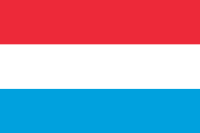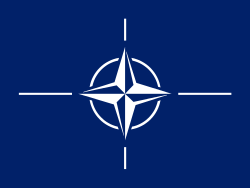Greater Luxembourg
Greater Luxembourg is a term for Luxembourg's irredentist claim to vast swathes of Europe. The idea is part of a 'Luxembourg 2030' initiative, to promote the nation's assertiveness on the world stage. [1]
Background

The term was first used by Luxembourg's prime minister, Xavier Bettel, as he submitted a proposal to expand the territory of the Grand Duchy of Luxembourg.
- "The Grand Duchy of Luxembourg is trapped. Trapped by larger powers, trapped from legitimately expanding on all sides, and trapped by the hostile policies of our neighbors, who look down on us. I propose a massive expansion of our territory to give us the things we need for our people. I demand access to the sea, I demand influence on most parts of Europe, I demand to expand my nation, giving my people the chance to thrive. Based on historical documents dating back to 1633, we can prove that we as a nation, own vast parts of Europe legally, and we have to right to govern these lost territories immediately, peacefully, and quickly. Luxembourg City shall become the New York City of Europe, bringing in the best and throwing out the worse. We can dictate to our neighbors under our own terms. Let Greater Luxembourg 2030 be the next great chapter in world history! "[2]
The claim encompasses:
- Luxembourg, as the 'mother country'.
- Most of Walloon, Belgium.
- Parts of Grand Est and Hauts-de-France, France.
- Parts of Hampshire and Sussex in the United Kingdom, including Portsmouth, Chichester, Southampton and Bognor Regis
- Most of Central Germany, including Berlin.
- Eastern half of Switzerland.
- Parts of Northern Italy, including Friuli-Venezia Giulia, South Tyrol and Veneto.
- Most of Southern Austria
- Most of North and Central Slovenia.
- Eastern Czech Republic.
- Most of Central Poland.
- All of Kalinigrad.
- Western half of Lithuania.
- Parts of Western Latvia.
- Southern half of Saare County, Estonia.
- Southern half of Belarus.
- Western half of Ukraine.
- Far East of Slovakia.
- Far East of Hungary.
- Parts of Northern Romania.
Implementation

Luxembourg intends to expand it's territories based on feudal claims of land rights, and to gain access to the ocean on a number of seaboards. The Duchy also wishes to gain a European industrial heartland, yet the plan has a number of challenges.
The Luxembourg Army only has approximately 450 professional soldiers, posing a challenge to the intended land invasions of 19 sovereign nations it needs to fulfill Greater Luxembourg, many of which have armies tens of thousands of times that size. Moreover, Luxembourg lacks a navy due to it's landlocked status, meaning that the proposed annexation of a small part of the United Kingdom would be impossible at the current stage.
Luxembourg is also a member of NATO, meaning that any attempted invasion, annexation or 'liberation' of it's proposed 'greater' territories would involve a violation of it's collective defense protocol, except Belarus and Ukraine.[3]
Reaction
-
 NATO: Secretary General of NATO, Jens Stoltenberg has described the plan as "unsavoury" and "a threat to harmony", warning Luxembourg against using force to achieve it's aims.
NATO: Secretary General of NATO, Jens Stoltenberg has described the plan as "unsavoury" and "a threat to harmony", warning Luxembourg against using force to achieve it's aims.
-
 Germany: Chancellor Angela Merkel stated "any plan to violate German territory is damaging for Europe"
Germany: Chancellor Angela Merkel stated "any plan to violate German territory is damaging for Europe"
-
 USA: President Barack Obama has urged Luxembourg to "use restraint" in it's plans to invade much of Europe. [4]
USA: President Barack Obama has urged Luxembourg to "use restraint" in it's plans to invade much of Europe. [4]
See also
References
- ↑ Veröffentlicht am Mittwoch, 30. November 2016 um 13:59. "Luxemburger Wort - Die Umbaupläne für den europäischen Strommarkt". Wort.lu. Retrieved 2016-12-04.
- ↑ , "BeneLux Journal 2011", Plans for Expansion , Vol. 3, No. 42, Sep-Dec. 2011, p. 46, n. 57.
- ↑ Veröffentlicht am Dienstag, 7. Juni 2016 um 05:52 (2006-09-18). "Luxemburger Wort - Das dreifache "Nein" und die Folgen". Wort.lu. Retrieved 2016-12-04.
- ↑ Veröffentlicht am Dienstag, 22. November 2016 um 06:50. "Luxemburger Wort - Trump erteilt TPP eine Abfuhr". Wort.lu. Retrieved 2016-12-04.